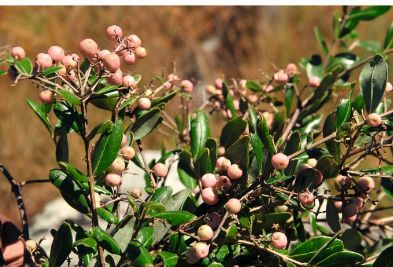
The Olinia Chimanimani, a critically endangered cycad in Zimbabwe faces serious extinction possibilities as the plant species has been extremely decimated in the natural habitat due to poaching and other human activities like mining activities around the Chimanimani Mountains. Olinia Chimanimani is restricted to the Chimanimani Mountains on the border of central Zimbabwe and Mozambique and is currently known from eight collections. The species is only known from the two locations, the Zimbabwean side of the Massif which is fairly well protected under the Chimanimani National Park (CNP) and the Mozambique portion under the National Reserve of Chimanimani (RNC) with limited protection.
The species is highly prone to burning by man, associated with the illegal artisanal mining activity though it occurs in rocky crags. The increase of human habitation also led to a further increased frequency of fires, which have an impact upon the species’ habitat. Severe fire damage has been observed since 2016 and being one of the few woody species occurring at a high altitude, the species burn more easily and has been targeted as a fuel source by the miners.
Research has shown that two-thirds of Africa’s cycad species are threatened, with four species already extinct in the Wild. The illegal acquisition of cycads from wild populations is the principle threat to their persistence.
CIASA recommends hefty jail terms that are conferred on rhino poachers to be conferred on wood cutters, plant smugglers and those that destroy plants. The law enforcement officials should make state prosecutors aware of the consequences of cycads becoming extinct and the reasons why successful convictions and maximum penalties are essential for effective enforcement in relation to cycad conservation. The National Herbarium and Botanical Gardens of Zimbabwe in partnership with organizations should collect different cycads that are among endangered species and grow in the collections of the garden. Civil Society Organizations in this line of work should contribute to and be part of the component of on-going efforts to coordinate activities within the “National Strategy for Conservation of Plants” in Zimbabwe.
